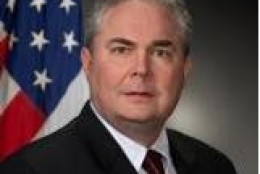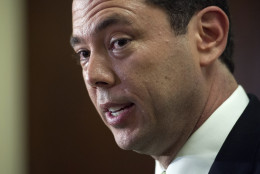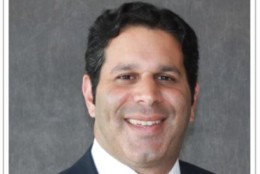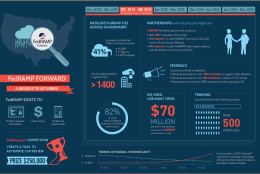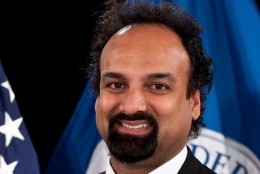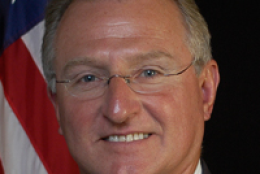Cybersecurity
-
The Army plans on requesting proposals for the third iterations of its ITES and ADMC contracts by next January. New proposals will likely tackle target areas such as mobility, cloud integration and cybersecurity, but CHESS wants to make sure small businesses are in the running for contracts.
August 20, 2015 -
Improving federal cybersecurity is the goal of a new effort that combines input from government and industry leaders. ACT-IAC is collecting responses from agencies, industry and academia on eight major challenges. The responses will go in a report to the Office of Management and Budget late next month. The public comment period closes Aug. 28. Mike Howell, ACT vice president at-large and deputy program manager at the Information Sharing Environment, tells In Depth with Francis Rose about the kinds of ideas he's looking for.
August 19, 2015 -
The chairman of the House Oversight and Government Reform Committee sent three letters-- one to OPM, one to DHS and one to one of OPM's main technology contractors, Imperatis Corp., seeking answers to a variety of questions.
August 19, 2015 -
The Office of Personnel Management faces a third lawsuit in the wake of the cybersecurity breach it suffered in June that resulted in 22 million past, present, and potential federal employees having their personal information stolen.
August 18, 2015 -
COMMENTARY: Ron Gula, the CEO of Tenable Network Security, makes the case for CIOs not to get overwhelmed by all the security rules and requirements and instead to focus on a few areas that can make a big difference.
August 18, 2015 -
The Office of Management and Budget just released new guidance on protecting non-sensitive information from federal contractors. The guidance would require contractors follow National Institute for Standards and Technology standards for protecting their information.
August 17, 2015 -
The real question GSA is trying to gather information on is whether the current cyber and information assurance SINs just need to be improved or if a new one is needed.
August 17, 2015 -
The first iteration of the cybersecurity dashboard under the continuous diagnostic and mitigation (CDM) is scheduled to be released this month.
August 17, 2015 -
Federal contractors have new guidance for protecting government information from the CIO and CAO Councils. Contractors will have to comply with some of the same standards agencies do. Jeremy Grant is managing director at the Cheroff Group and former director of the National Strategy for Trusted Identities in Cyberspace at NIST. He tells In Depth with Francis Rose what this means for contractors who will have to comply with these NIST standards.
August 13, 2015 -
Matt Goodrich, FedRAMP director at the Office of Citizen Services and Innovative Technologies at GSA, wants to hear what's working and what's not as more agencies move to the cloud.
August 13, 2015 -
New guidance on protecting non-sensitive information from federal contractors is out from the CIO and CAO Councils. It would require that contractors follow a specific NIST Special Publication for protecting their information. The Office of Management and Budget is asking agencies and vendors now for feedback. Final guidance is expected later in the fall. Nick Nayak is former chief procurement officer at the Homeland Security Department. He tells In Depth with Francis Rose that the councils are looking to address incident reporting, information system assessments, and information security continuous monitoring.
August 12, 2015 -
A cyber breach at the Food and Drug Administration back in 2013 -- and hacks against other Health and Human Services Department components -- could have been stopped if the department's chief information officer and chief information security officer function separately. That's according to a new report from the House Energy and Commerce Committee. It says CISOs would do a better job protecting their agencies from cyber threats from the department's legal office rather than the CIO office. John Teeter is a former deputy chief information officer and acting CIO for HHS and is now a health IT consultant. He tells In Depth with Francis Rose about the different responsibilities for CIOs and CISOs and how they work together.
August 11, 2015 -
IT leaders in both the government and private sector recognize that the numbers and potency of cybersecurity threats are accelerating. More than 75 percent of respondents surveyed by the Aspen Institute and Intel Security said they believe a national defense force should respond to cyber attacks that damage critical infrastructure. Steve Grobman is the chief technology officer for Intel Security. He joined Tom Temin on the Federal Drive to review what else the survey found.
August 11, 2015 -
Daniel Turissini, chief technology officer and chief information security officer of SolPass LLC, argues the federal government’s current approach to cybersecurity is too focused on analysis, containment and recovery, and not enough on prevention.
August 11, 2015 -
Secretary Jeh Johnson is reorganizing the National Protection and Programs Directorate (NPPD) and elevating the role of the National Cybersecurity and Communications Integration Center (NCCIC). He named Andy Ozment and John Felker to run the NCCIC.
August 10, 2015


